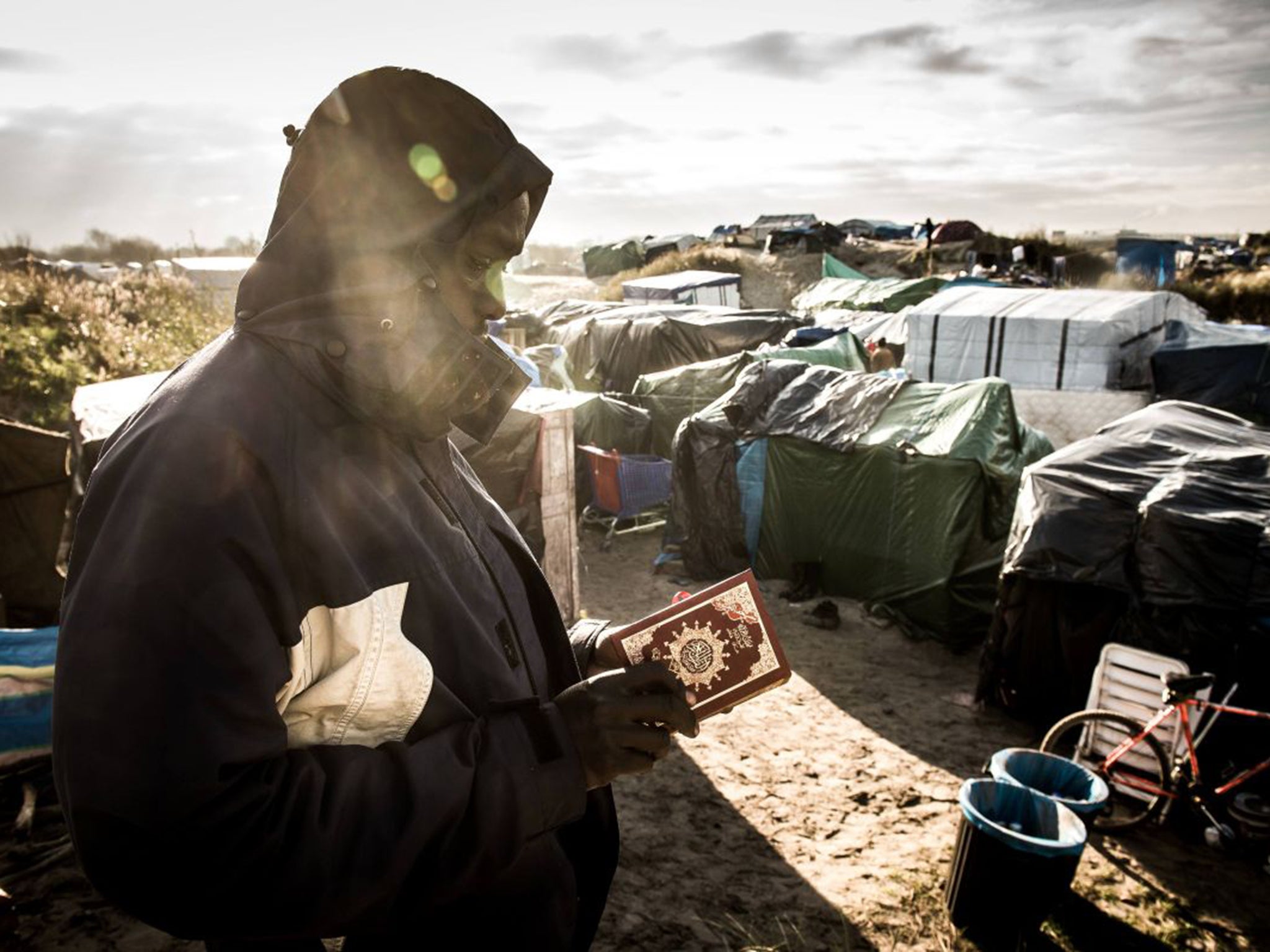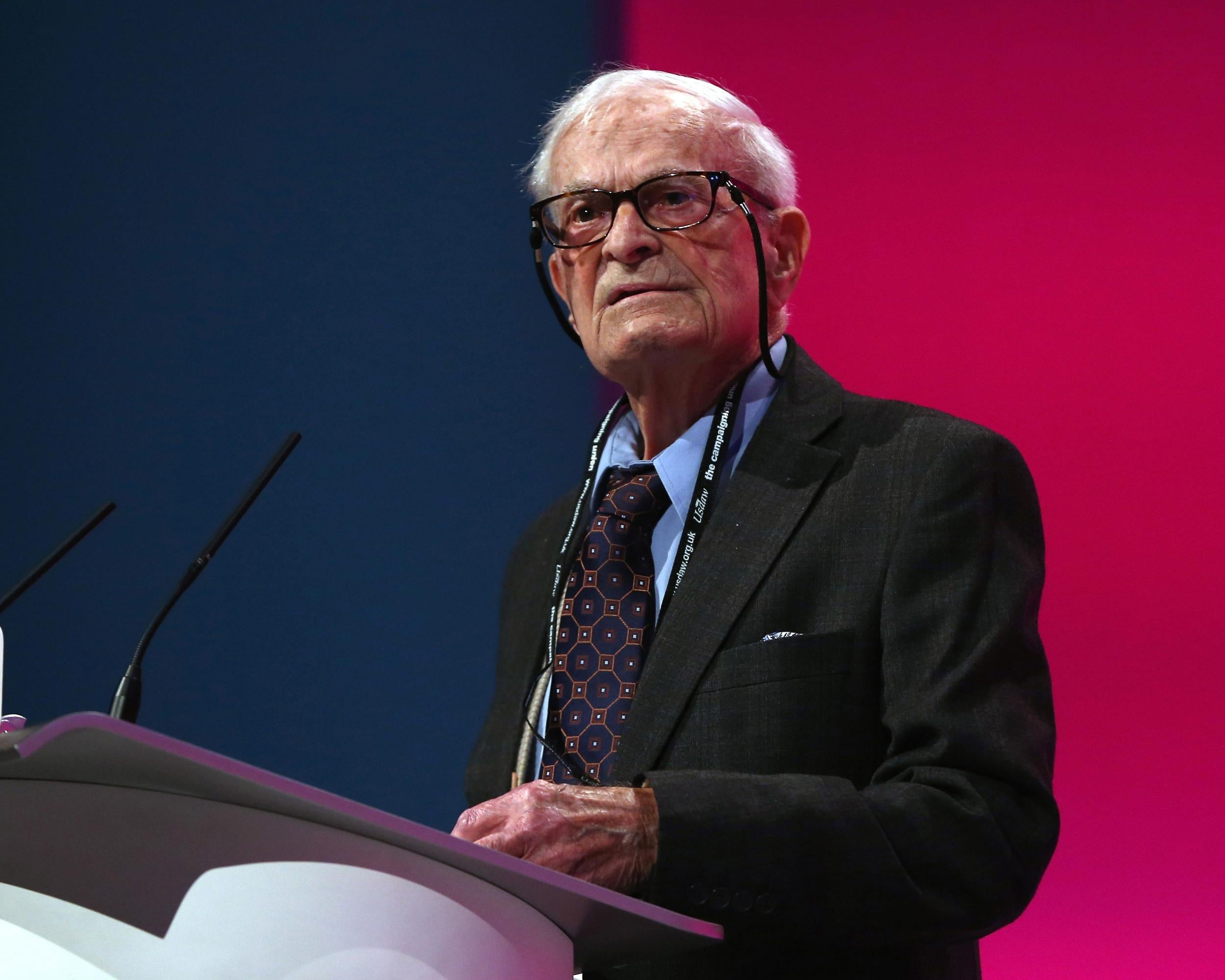Second World War veteran brands politicians and world leaders 'selfish and foolish' over refugee crisis
The 92-year-old writes about his experience visiting the 'Jungle' refugee camp in Calais in the New Statesman

Your support helps us to tell the story
From reproductive rights to climate change to Big Tech, The Independent is on the ground when the story is developing. Whether it's investigating the financials of Elon Musk's pro-Trump PAC or producing our latest documentary, 'The A Word', which shines a light on the American women fighting for reproductive rights, we know how important it is to parse out the facts from the messaging.
At such a critical moment in US history, we need reporters on the ground. Your donation allows us to keep sending journalists to speak to both sides of the story.
The Independent is trusted by Americans across the entire political spectrum. And unlike many other quality news outlets, we choose not to lock Americans out of our reporting and analysis with paywalls. We believe quality journalism should be available to everyone, paid for by those who can afford it.
Your support makes all the difference.A war veteran who has lived through two of the biggest refugee crises of the past 80 years survivor has summed up the difference in attitudes to them after a visit to the "Jungle" camp in Calais.
Harry Leslie Smith, 92, has lived through the Great Depression, the Second World War and post-war austerity. He served in the RAF and is now an activist for the poor and for the preservation of social democracy.
The camp – dubbed the "Jungle" by the people there because of the poor living conditions - has become a temporary home to around 3,000-4,000 men, and about 350 women and children. A squalid area with little or no sanitation, it is the final stop for many refugees from the Middle East and Africa as they try to seek refuge in the UK.
Writing in the New Statesman, Mr Smith observed how the fencing at the port in Calais and and nearby Channel Tunnel terminal seemed to be a reflection of British politicians' "opinion of immigration, refugees, the consequences of war and the responsibility for peace", comparing the fence to the barriers separating East and West Germany during the Cold War.
Reflecting on the harsh stance of Europe - and its leaders - towards refugees, Mr Smith wrote:
“The world has changed since I was young. It has not grown harder: just more foolish and selfish. I have seen camps like the Jungle before – at the end of the war. But back then, there was a desire among ordinary citizens and their leaders to alleviate the plight of refugees. Today, it is different. The common will to do good, or at least maintain a decent society for all, has vanished. Our politicians – and we, the ordinary people – are ignoring our moral, political and human responsibility to be our brothers’ keepers. In the end, the only thing that separates us from those who live in the Jungle is luck – and any gambler will tell you that this can change at the turn of a card.”
Mr Smith described being "haunted" by the experience:
Responses to the refugee crisis by the UK and US have been regularly criticised for not being enough.
in October, sympathy from the public towards refugees soared after photos of a dead refugee child, Aylan Kurdi, on a Turkish beach surfaced.

Pressure on the British government led to an offer to resettle 20,000 Syrian refugees over the course of five years, which was condemned for being “too low, too slow and too narrow” by 300 senior lawyers, former law lords and retired judges.
However, since the Paris terror attacks in November, a poll by The Times has found a significant slump in public support for the resettlement of refugees in Britain.
At the time photos of three-year-old Aylan emerged, 27 per cent of people surveyed by YouGov believed Britain should be accepting “fewer or no refugees”.
But a poll by The Times shortly after the Paris attacks suggested the figure nearly doubled, with 49 per cent of those surveyed holding those views.
US politicians have also come under fire for what many perceive to be a minimal response to the crisis. In November, John Oliver criticised politicians who wished to block Syrian refugees from entering the country and explained the rigorous vetting system already in place which has only allowed 1,500 Syrian refugees into the US so far.
Earlier this month, Texas sued the US government in an effort to stop the resettlement of six Syrian refugees in the mostly-Republican state. Texas' Republican Governor Greg Abbott wrote in a letter to the White House urging President Barack Obama to "halt your plans to allow Syrians to be resettled anywhere in the United States".
Americans are now more afraid of the threat of terror than any other time since the weeks following the 9/11 attacks, a survey by New York Times/CBS News found four days ago. Many have linked this as a natural response to 'Trumpism', an ideology defined by the Foundation for Economic Education as a "low art of fear and fanaticism".
'Trumpism' is a term coined in relation to the controversial and often fear-mongering remarks made by Republican frontrunner Donald Trump, who most recently called for a "ban on all Muslims" entering the United States.
Join our commenting forum
Join thought-provoking conversations, follow other Independent readers and see their replies
Comments